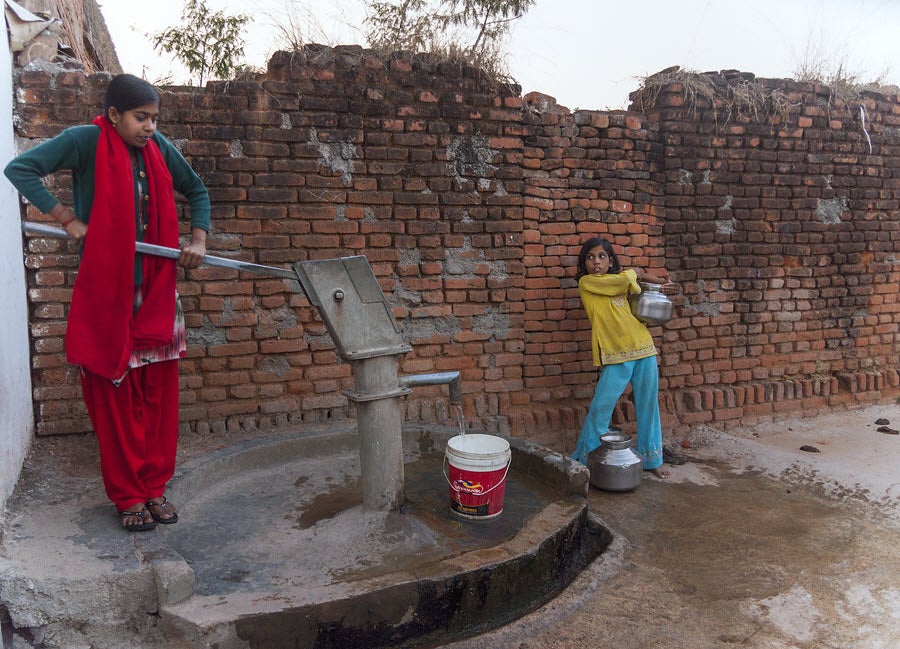Water quality in wells and boreholes changes and they are potentially vulnerable to intermittent fecal contamination.
Here’s how:
- Fluctuations due to rainfall and rainfall runoff into source waters and groundwater
- Contaminated surface water and/or groundwater enters improperly constructed well
- Presence of animals where there are no barriers at well or borehole to protect against animal fecal contamination
- Poor sanitary protection at the top of the borehole, no sanitary seal or well apron
- Hand pump base doesn’t have a watertight seal where it attaches to the casing
- Contamination at the well pump outlet (spout) from contaminated hands
- Casing doesn’t extend far enough above the ground and surface water can enter well, defective well casing and/or liner
- Contaminated objects fall into well
- Shallow, open wells are more susceptible to contamination
- Intermittent septic system intrusion and/or other transient fecal source
Here are other helpful resources on water quality monitoring.
Do you have questions about water quality testing? Contact us!



